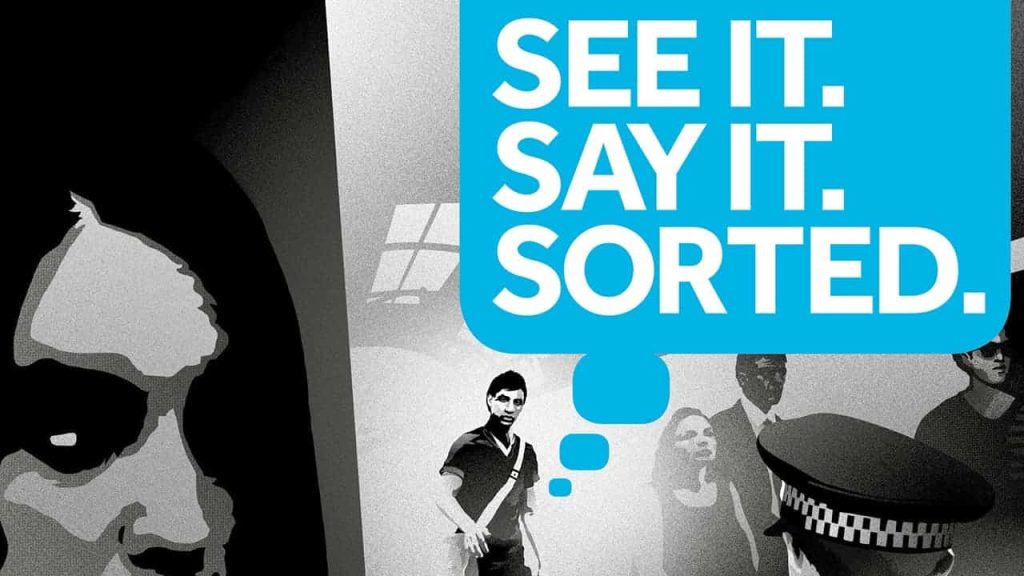See it, Say it, Sorted
The slogan is not only vulgar, but an implicit lie

by Theodore Dalrymple
Someone must be very proud of the slogan “See it, say it, sorted”, for it is relayed countless times — ad nauseam, in fact — over public address systems in British trains and stations.
The slogan has the effect that a squeaky piece of chalk had on me as a child — it sent shivers down my spine and made me clench my jaw and grind my teeth. It is preceded by “If you see anything that doesn’t look right, call the British Transport Police …” Recently, however, it was changed on at least one train to “If you see anything unusual, call the British Transport Police …”
Something unusual — like a well-dressed person, for example? You can go a long way on British trains before you see a well-dressed person, probably longer than you can see someone being aggressive. Nevertheless, if everyone who saw something unusual called the BTP, it would soon be inundated by calls.
See it, say it, sorted: what does “sorted” mean in the context of the British police? If the experience of countless millions is anything to go by, it means “sorted” as far as the police are concerned, that is to say an incident is given, often somewhat reluctantly, a crime number.
I say reluctantly because a crime number for a crime that the police have no intention of investigating, let alone solving, messes up the statistics with which to deceive the public.
Sorted, indeed! One would have thought that the police were as efficient as a modern diesel car. The slogan is not only vulgar, but an implicit lie.
First published in The Critic.